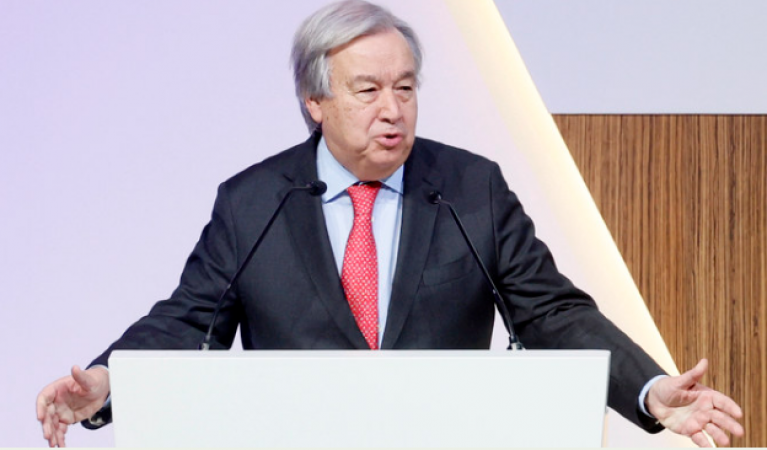
UNO: Globally, women's rights are being "abused, threatened and violated", and if things continue as they are, gender equality may not be achieved for another 300 years, the UN Secretary-General warned on Monday.
The Commission on the Status of Women, the UN's lead international agency promoting gender equality, opened its session with Antonio Guterres warning that decades of progress are being lost because "the patriarchy is fighting back."
In many countries, the UN chief claimed, citing Afghanistan as an example, "women and girls have been erased from public life." He also said that the sexual and reproductive rights of women are being curtailed.
Also Read: Trudeau requests fresh investigations into alleged Chinese election meddling
Additionally, they claimed that there are many places where school-going girls are at risk of kidnapping and assault, and complained that some police prey on the vulnerable women they are supposed to protect.
According to Guterres, from Ukraine to the Sahel, crises and conflicts affect women and girls first and foremost.
According to her, other setbacks include the rise in maternal mortality, the impact of COVID-19 on girls being forced into marriage and keeping them out of school, and the lack of employment opportunities for mothers and caregivers.
The Commission on the Status of Women is focusing on closing the gender gap in technology and innovation during its two-week session. According to the Secretary-General, the topic is urgent as women and girls are lagging behind with the advancement of technology.
Also Read: USA: 2023 is a "make or break" year for South Sudan
"Only 19 percent of women are online in the least developed countries, where three billion people still do not have internet access, the majority of whom are women and girls," Guterres said.
Only a third of students studying science, technology, engineering and maths around the world are girls and women.
In the tech sector, men outnumber women two to one, and only one in five employees in the growing field of artificial intelligence are women, according to them.
She claimed that "big data" is the basis of business and political decisions, but it "often ignores gender differences or turns a blind eye to women altogether, resulting in products and services built into gender inequality from the outset." Let's put it."
To equalize power between men and women, Guterres urged swift action.
She argued that, especially in developing countries, education, employment, and income of women and girls should increase. She urged "from governments to board rooms and classrooms" to support the full participation and leadership of women in science and technology.
Additionally, Guterres said that "gender-trolling" along with "false misinformation and misinformation" on social media should be eradicated from the online space.
At the commission's inaugural meeting, UN Women Executive Director Sima Bauhaus said that "the digital divide has become the new face of gender inequality." According to them, there were 259 million more men than women online last year.
She also cited research showing that three-quarters of female journalists from 125 countries had experienced online harassment at work and one in five of them had resorted to self-censorship as a result.
According to Bahaus, the Taliban in Afghanistan door-marked women who expressed themselves through YouTube and blogging, and many of them fled the country to protect themselves. She claimed that many Iranian women are still singled out for harassment for participating in online campaigns.
Also Read: In Japan a brand-new medium-lift rocket is destroyed
According to her, the challenge is to "fix harmful gender stereotypes around institutions and technology and innovation that fail women and girls" and ensure that abusive behavior is not tolerated online while holding perpetrators accountable.
According to the Bauhaus, if we don't conclude this meeting by saying, as a group and without ambiguity, "enough, no more," we will fail.